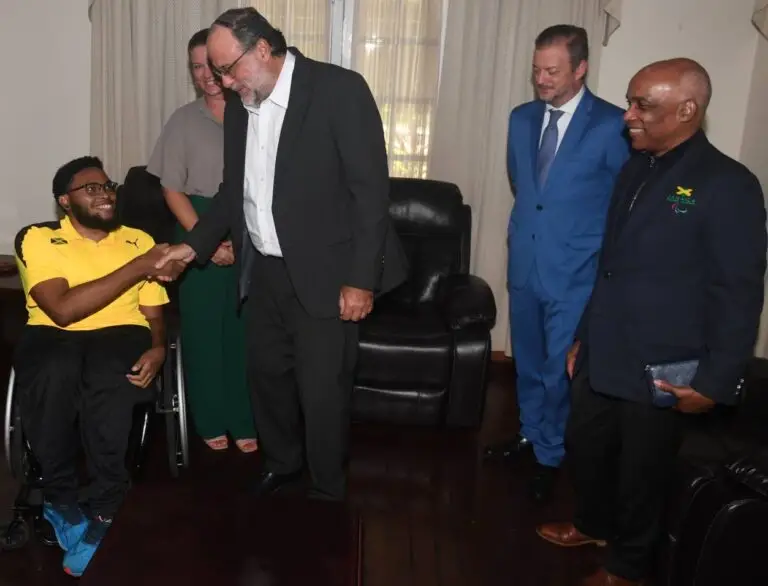Kingston, Jamaica – The future of Para sports in Jamaica is at a crossroads. While the country has long celebrated its track and field dominance, its Paralympic athletes continue to fight for basic support, infrastructure, and recognition. The Jamaica Paralympic Association (JPA) is calling for urgent action, moving beyond symbolic gestures and into the realm of policy-backed investment.
JPA President Christopher Samuda has made it clear: the time for discussions is over. Without concrete policies and financial commitments, Jamaica’s Paralympic movement will remain an afterthought, depriving talented athletes of the opportunity to compete at the highest level.
“We cannot continue to treat Paralympic sports as a side project,” Samuda asserted. “Our athletes have proven their talent and dedication time and time again, yet they face challenges that their able-bodied counterparts do not. Accessibility, funding, and competitive opportunities—these are not luxuries; they are necessities.”
Lack of Infrastructure Stalls Progress
Despite increased global recognition of the Paralympic movement, Jamaica still lacks the infrastructure to properly support its athletes. Training facilities are limited, adaptive equipment is costly, and many Para athletes struggle with inconsistent financial backing.
The JPA recently hosted top officials from the International Paralympic Committee (IPC) and the Americas Paralympic Committee, engaging in discussions about how to accelerate development in Jamaica. The message was clear: without a formalized national sports policy dedicated to Para athletes, progress will remain slow.
The Economic Case for Investing in Para Sports
It’s not just about competition—it’s about national development. Countries that prioritize Para sports reap social and economic benefits, from increased corporate sponsorships to improved accessibility in public spaces. IPC President Andrew Parsons stressed that investment in Para sports yields high returns, not only for the athletes but for the entire society.
“When nations invest in their Paralympic programs, they see a ripple effect,” Parsons explained. “It’s not just about medals; it’s about inclusion, job creation, and changing public perception. Jamaica has the talent—now it needs the infrastructure and funding to match.”
Parsons also issued a challenge to Jamaica’s private sector, urging businesses to recognize the untapped potential of supporting Para sports.
“Fifteen percent of the population lives with a disability. If they are excluded from the workforce, from financial opportunities, from participation in society, the entire economy suffers. Investing in Para sports isn’t charity—it’s smart business.”
Shifting the Narrative: From Sympathy to Support
One of the biggest hurdles for Para athletes is overcoming outdated perceptions. Many still see disability sports through a lens of sympathy rather than respect. The JPA’s I Am Phenomenal campaign aims to change that by showcasing the strength, resilience, and achievements of Jamaica’s Paralympians.
With National Paralympic Day set for March 11, the campaign will highlight athlete success stories, promote accessibility initiatives, and push for concrete commitments from both the government and corporate sector.
Samuda remains hopeful but insists that change must happen now.
“We don’t need more speeches. We need facilities. We need funding. We need policies that don’t just talk about inclusion but actually enforce it. Our athletes are ready—Jamaica needs to be ready for them.”
As the country moves forward, the question remains: will Jamaica step up for its Paralympians, or will they continue to be sidelined by inaction?






